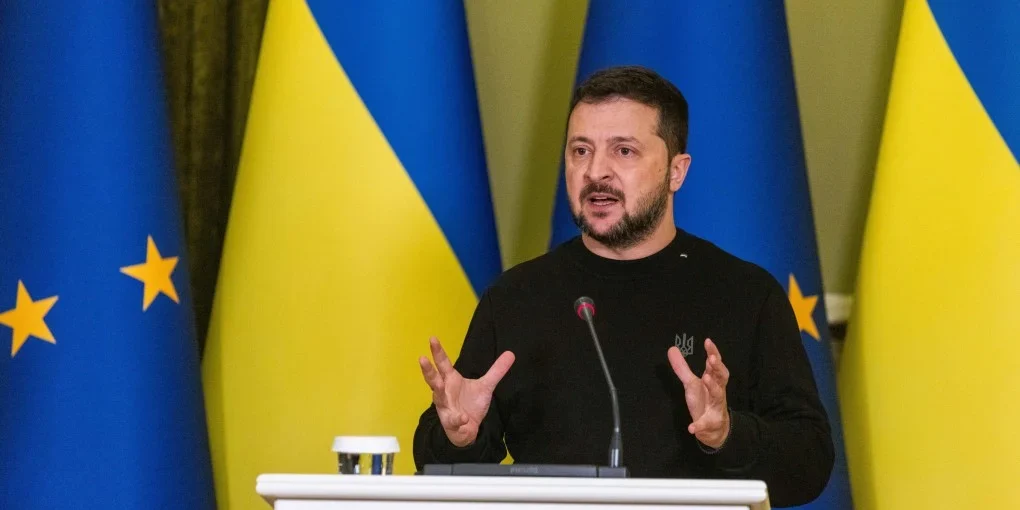Zelensky – NATO Membership For Non-Occupied Areas Of Ukraine

Ukrainian President Volodymyr Zelensky has proposed that NATO consider extending membership to the areas of Ukraine currently under government control. The move, he argues, could significantly alter the course of the war with Russia by providing much-needed security assurances for Ukrainian territories not occupied by Russian forces. Zelensky emphasized that any NATO invitation should cover all internationally recognized Ukrainian territories, including those currently under occupation, signaling Kyiv’s intent to reclaim lost regions through diplomacy.
The proposal reflects Ukraine’s strategic shift in seeking immediate guarantees for areas it controls, while maintaining long-term claims to occupied territories. Zelensky has underscored the importance of NATO membership as a deterrent against further Russian aggression, suggesting that the move could serve as a pathway to ending the active phase of the war. However, he clarified that Article 5, NATO’s mutual defense clause, would not apply to regions under active conflict.
This initiative comes as Ukraine continues to face intensified Russian military aggression. Recent aerial assaults targeting Ukraine’s energy infrastructure have plunged over a million households into darkness, with officials warning that Moscow appears intent on debilitating the country’s power generation capabilities ahead of winter. Russian forces have launched nearly 200 missiles and drones in coordinated attacks, raising concerns of a renewed campaign to cripple Ukraine’s civilian infrastructure.
Meanwhile, Russian President Vladimir Putin has approved a dramatic increase in military spending for 2025, with defense expenditures set to rise to approximately $145 billion. The move reflects Moscow’s commitment to sustaining its war efforts, even as it faces mounting international sanctions and economic pressure.
The war’s toll on civilians remains profound. In Kherson, a Russian drone strike on a shuttle bus killed three people and injured several others, highlighting the human cost of the conflict. Ukrainian officials continue to accuse Russian forces of deliberately targeting civilians in their campaign, while international observers have condemned such attacks as violations of international law.
The humanitarian crisis extends to the issue of prisoners of war. Thousands of soldiers remain in captivity, with Ukraine accusing Russia of using POWs as leverage against Kyiv. Families of detained soldiers have been calling for more decisive action, urging both governments to accelerate negotiations for their release. Reports of systematic torture and poor conditions in Russian facilities have further fueled calls for international intervention.
Zelensky has called on Ukraine’s allies to increase their support, emphasizing the critical role of Western security guarantees. In a recent meeting with European Council President Antonio Costa, he urged greater alignment between NATO and the European Union to ensure Ukraine’s stability. Costa, on his first visit to Kyiv, reiterated the EU’s support for Ukraine’s sovereignty and its path to European integration.
As the conflict continues, Zelensky’s proposal for NATO membership highlights the precarious balance Ukraine must maintain between military resilience and diplomatic negotiations. With winter approaching and Russian attacks escalating, the international community faces mounting pressure to act decisively in support of Ukraine while avoiding further escalation in the region.